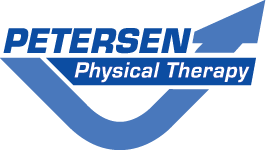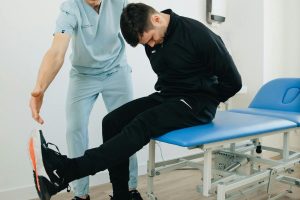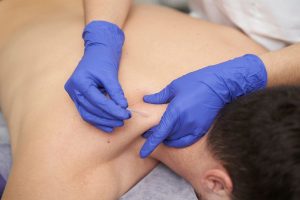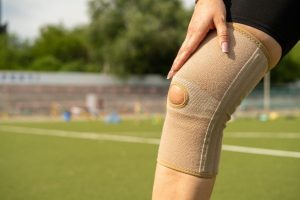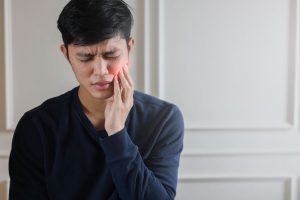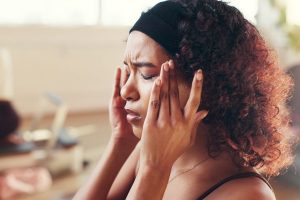We’ve been offering dry needling in our physical therapy clinics for over 10 years at this point, and it’s become one of our favorite modalities. However, one of the most common questions we hear is the very reasonable question: does dry needling hurt?
Here’s the reality:
Dry needling may cause mild discomfort, typically described as a brief prick or pressure sensation during needle insertion and a dull ache or tingling at the trigger point site. However, individual experiences vary, and many people find the discomfort to be minimal and tolerable.
In this article, we’ll discuss what you can expect from the dry needling therapy you receive in a physical therapy clinic, including any pain you may feel during or after the treatment.
Managing expectations about pain from dry needling
While some individuals may find dry needling to be uncomfortable, others may experience little to no discomfort at all. Factors such as individual pain tolerance, the location of trigger points, and the skill of the practitioner can all influence the overall experience.
It’s also worth noting that any discomfort experienced during dry needling is typically short-lived, lasting only as long as the needles remain inserted in the muscles. Learn more about how dry needling actually works here.
Does dry needling therapy hurt during the session?
Though dry needling isn’t necessarily a catch-all solution for everyone (see our writeup on the pros and cons of dry needling here), it works very well for its intended purpose, and any pain sensations from the filiform needles piercing the skin is typically short-lived.
Many patients report that they feel the small pricks, and from that point forward the sensation isn’t all that different from basic electrical stimulation you would receive in the clinic.
The intensity of the stimulation can be upregulated or downregulated as your tolerance allows, and we encourage you to always communicate with your therapist so they know how much is enough.
After the session, patients typically report that they feel relief in the area, rather than pain. Of course, everyone’s experience will be a little different, and you’re more than welcome to deny dry needling therapy if your experience isn’t as positive as you’d hoped.
Does dry needling hurt afterwards?
There can be some mild soreness after dry needling therapy, but like the small pain sensations during the treatment, it typically isn’t very intense.
It’s possible to have some mild localized inflammation in the area, and even a little bit of bleeding immediately afterward (not typical). If this is the case, notify your therapist and we can make adjustments to the treatment plan accordingly.
Keep in mind that everyone’s experience with pain is a little different. You may feel that a stimulus isn’t all that bad, whereas someone else may find it extremely unpleasant, and vise versa. Additionally, things like sleep quality, nutrition, and mood can have a large effect.
For this reason, you may find that your pain experience after dry needling may vary from one day to another. As stated above, we find that the pain is typically very minimal, if it’s even present at all.
Does dry needling hurt more than acupuncture?
Many of our patients have had experience with traditional Chinese medicine in the past, and it’s logical to wonder what the difference is between dry needling and acupuncture. Though dry needling and acupuncture are not the same thing, it makes sense to compare the two.
Some patients do report that dry needling hurts slightly more than acupuncture does, and others find it comparable.
We believe the primary reason that some patients report dry needling hurts more than acupuncture is that dry needling is typically performed in response to a particular injury. As such, the dry needling is very localized to an injured joint or source of pain, and typically those areas are more sensitive by default.
In other words, it may not be the modality, but the circumstances that are leading to the increased pain stimulus from dry needling.
What to do if dry needling hurts
If you’re nervous about experiencing dry needling, the first thing we’d tell any patient is that there’s no pressure – you have the right to deny any and all treatment, at any time, for any reason.
Additionally, if you’re concerned that dry needling will hurt, discuss these concerns with your therapist in advance. Since it’s likely that we’ll be working with you for a few months at a time, we can take it slow the first session or two in order to allow you time to decide whether dry needling is a good fit for your individual situation.
If you’ve had a dry needling session and experienced pain during or afterwards, please discuss this with your therapist immediately! We’re big believers in empowering our patients to be active participants in their own healthcare; if something doesn’t feel right, we want to know right away so that we can adjust the treatment plan moving forward.
